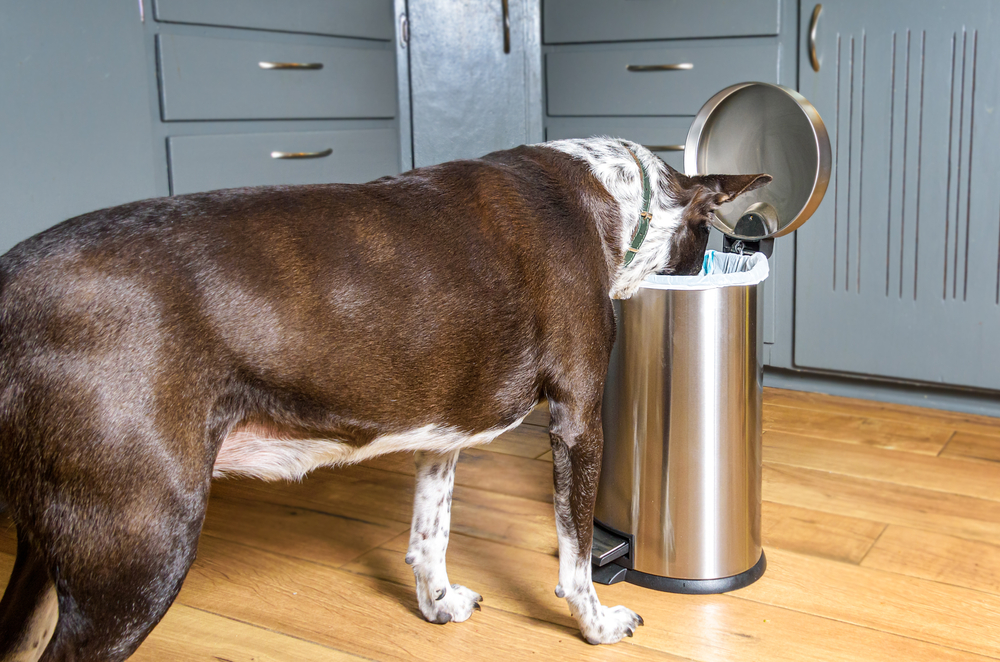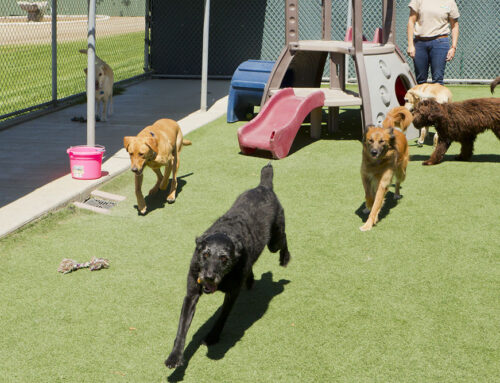The holidays are around the corner, and you should become aware of pancreatitis, a painful and potentially life-threatening pet condition that can be triggered if they ingest fatty foods. Our Animal Clinic of Council Bluffs team provides information about pancreatitis and explains how you can reduce your furry pal’s risk.
Your pet’s healthy pancreas
To understand pancreatitis, you first must learn what a healthy pancreas does. The glandular organ sits under the stomach, along the small intestine’s first section. The pancreas has two main functions:
- Aids in digestion — The pancreas secretes digestive enzymes, including trypsin and chymotrypsin to digest proteins, amylase to digest carbohydrates, and lipase to break down fats.
- Regulates nutrients — The pancreas also secretes insulin and glucagon, which are hormones that help regulate how the body uses nutrients.
Pancreatitis in pets
Normally, digestive enzymes are inactive in pancreatic granules until they reach the intestine, where duodenal enzymes activate them. When pancreatitis develops, the digestive enzymes prematurely activate, causing the organ and surrounding tissues to become inflamed and break down. This causes a toxin release that can lead to a body-wide inflammatory response, which can cause serious consequences such as disseminated intravascular coagulation (DIC) and pancreatic encephalopathy. DIC causes bleeding and clotting abnormalities throughout the body that can lead to organ damage and uncontrollable bleeding, and pancreatic encephalopathy can result in brain damage. In addition, if the digestive enzymes destroy the pancreas’s insulin-producing part, temporary or permanent diabetes can result.
Pancreatitis causes in pets
In many cases, veterinary professionals are unable to identify the exact pancreatitis cause. However, some factors can trigger or predispose your pet to the painful condition:
- Ingesting a high-fat meal — Ingesting high-fat foods, such as holiday smorgasbord treats, can stimulate lipase release to digest the fats and trigger pancreatitis.
- Duodenal reflux — The duodenum is the part of the small intestine in which the pancreatic digestive enzymes are secreted and activated. If duodenal contents containing activating enzymes reflux up the pancreatic duct, this can prematurely activate the digestive enzymes and cause pancreatitis.
- Trauma — Significant trauma, such as being hit by a car, can damage the pancreas and lead to pancreatitis.
- Hormonal imbalances — Conditions, such as diabetes and hypothyroidism, alter fat metabolism, which predisposes a pet to pancreatitis. In addition, hypercalcemia elevates blood calcium levels that can activate stored digestive enzymes.
- Obesity — Overweight pets are at an increased pancreatitis risk because the excess adipose tissue alters their fat metabolism.
- Breed — Certain breeds, such as miniature schnauzers and cocker spaniels, have a high pancreatitis risk.
- Tumor — A pancreatic tumor can cause inflammation and trigger pancreatitis.
- Certain medications — Pets receiving certain medications, such as sulfa-containing antibiotics, chemotherapy drugs, and anti-seizure medications, have a high pancreatitis risk.
Pancreatitis signs in pets
Pancreatitis can present as an acute or chronic condition. The acute presentation typically has more dramatic signs. Acute pancreatitis signs include:
- Extreme lethargy or depression
- Abdominal pain
- Persistent vomiting
- Severe dehydration
- Collapse
Chronic pancreatitis can also cause significant health problems. Chronic pancreatitis signs include:
- Lethargy
- Decreased appetite or inappetence
- Intermittent vomiting
Pancreatitis treatment in pets
Most pets who develop pancreatitis require hospitalization for intensive treatment and monitoring. Treatment may include:
- Intravenous (IV) fluid therapy — IV fluid therapy is necessary to correct dehydration, restore circulation to the pancreas, and support the body’s natural healing processes.
- Pain relief — Medications, such as nonsteroidal anti-inflammatories (NSAIDs), help alleviate a pet’s pain and inflammation.
- Nausea relief — Antinausea medications are necessary to restore an affected pet’s interest in food and help prevent vomiting and further dehydration.
- Nutritional support — If antinausea medication isn’t enough to stimulate an affected pet’s appetite, our Animal Clinic of Council Bluffs team may place a gastrointestinal (GI) tube to provide nutritional support.
- Gastric protectants — We often prescribe medications to protect the stomach from ulceration.
- Pancreatitis medication — A U.S. Food and Drug Administration (USFDA)-approved medication is also available to help manage dogs’ acute-onset pancreatitis.
- Low-fat diet — You must feed your affected pet a low-fat diet for several weeks and potentially for the rest of their life.
Pancreatitis prevention in pets

Because the cause of many pancreatitis cases remains undetermined, you may be unable to prevent your pet from developing this painful condition. However, to decrease your four-legged friend’s pancreatitis risk, follow these tips:
- Do not share your food — Never feed your pet food intended for people. Not only can doing so trigger pancreatitis, but many foods we eat are toxic to pets. In addition, ensure your guests and your children do not share table scraps with your pet.
- Prevent dumpster diving — Store your garbage in sealed containers to prevent dumpster diving.
- Keep food out of your pet’s reach — Keep food off your counters or stored in sealed containers to prevent your pet from stealing an unsanctioned treat.
- Maintain your pet’s healthy body weight —Keep your pet at a healthy body weight.
- Offer healthy treats — Limit treats and choose healthy options such as baby carrots, snap peas, and green beans.
- Schedule regular wellness exams — Through your furry pal’s regular veterinary wellness exams, our team can detect conditions, such as diabetes and hypothyroidism, that can predispose your pet to pancreatitis.
To schedule your pet’s wellness exam, or if they exhibit abdominal pain or vomiting, contact our Animal Clinic of Council Bluffs team.






Leave A Comment